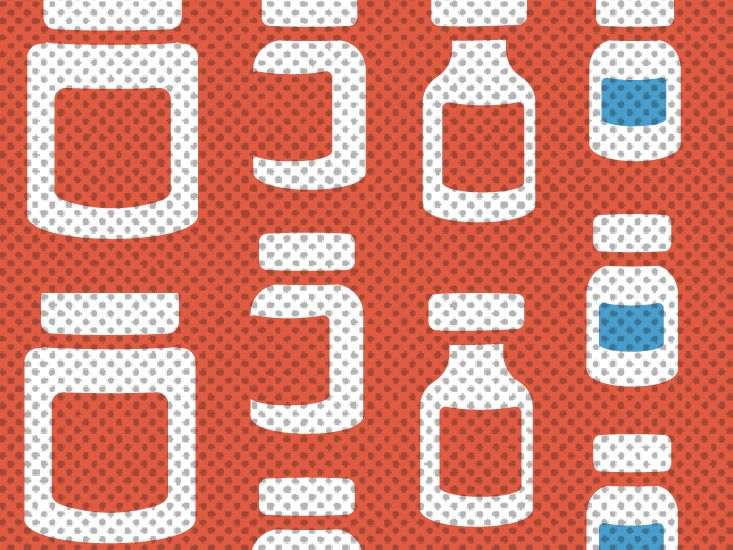Did you know some people with ADHD use Lion's mane to feel clearer and less scattered? Here's the bottom line up front: there's no direct clinical trial proving Lion's mane treats ADHDbut early research suggests possible cognitive benefits that might help some folks. Think of it like a gentle nudge for brain health rather than a magic switch for attention.
If you're considering Lion's mane for ADHD, this guide walks you through what we actually know (and don't), how to choose a product, dosing basics, safety and interactions, and realistic expectationsso you can make a calm, confident decision with your clinician. Take a breath, grab a cup of something warm, and let's explore this together.
What is Lion's maneand why are people with ADHD curious?
Quick overview
Lion's mane (Hericium erinaceus) is a shaggy, white functional mushroom with a long history in East Asian traditions. In the wellness world, it's gained a devoted following for potential cognitive benefits mushrooms might offerthings like mental clarity, memory support, and mood balance. The star compounds here include hericenones and erinacines, which are being studied for their potential to support nerve growth factor (NGF) and brain-derived neurotrophic factor (BDNF). In plain English: these molecules may help support the brain's ability to repair, adapt, and form connections.
Beyond that, Lion's mane also shows anti-inflammatory and antioxidant activity in preclinical research. Think of inflammation like static noise in your brain; turning down that static may help some people think and feel a bit clearer. That's the theory, anyway.
Why it's on ADHD radar
ADHD often brings challenges with working memory, motivation, focus, and mood regulation. Many folks also talk about "brain fog"that heavy, fuzzy feeling that makes tasks feel uphill. Anecdotally, some people report that Lion's mane helps them feel more focused and steady, with fewer mental cobwebs. Combine that with the rising interest in natural ADHD remedies and you can see why Lion's mane ADHD is a trending topic.
To be super clear: anecdotes are not the same as clinical trials. But when you live with ADHD, you learn to gather practical tools and test what truly helps. Lion's mane is one tool you might considerwith eyes wide open.
Evidence check
What research says
Let's rip off the Band-Aid: there are currently no ADHD-specific clinical trials on Lion's mane. Most of what we know comes from small human studies on cognition or mood, and from animal or cell research. For example, a small randomized trial in older adults with mild cognitive impairment found improvements in cognitive testing after Lion's mane extract over several weeks, with benefits fading after stopping. Other small studies suggest potential support for mood and sleep quality in stressed adults. There are also preclinical findings showing NGF-related activity in the brain and nerve-regenerative hints in peripheral nerves.
What does that mean for ADHD? It's suggestive, not definitive. Improvements in mild cognitive impairment don't automatically translate to better focus in ADHD. Still, these findings are enough to justify cautious curiosityespecially if you're already working on core ADHD strategies.
Limits and gaps
We need to talk about the cracks in the evidence wall: small sample sizes, short durations (often 412 weeks), inconsistent products (fruiting body versus mycelium; different extraction methods), and a lack of ADHD-specific endpoints like attention tasks or hyperactivity measures. Placebo effects are realespecially when you're hoping a natural supplement will help. So, if you try Lion's mane, treat it like an experiment with a hypothesis, not a guaranteed fix.
Spotting hype
How do you read supplement claims without getting burned? Watch for red flags like promises to "cure ADHD" or vague phrases like "clinically proven" without links to peer-reviewed studies. Look for brands that share Certificates of Analysis (COAs), specify which part of the mushroom they use, and disclose extraction methods. If a claim sounds too good to be true, it probably is. As a general approach, start with reputable summaries and reviews in academic or medical sources. For instance, you can scan balanced overviews on functional mushrooms and cognition from academic reviews referenced in peerreviewed literature and research databases; they'll often highlight both potential benefits and limits.
Potential benefits
Cognitive domains that may matter
Attention and focus: The theoretical pathway is that by supporting NGF/BDNF signaling and reducing neuroinflammation, the brain may maintain sharper attention networks. What we have: early human studies showing cognitive support in older adults and mood improvements in stressed populations. What we don't have: direct evidence it improves attention scores in ADHD.
Working memory, processing speed, brain fog: These are common pain points for many of us with ADHD. While there's no guarantee, some people notice they can hold details a bit better or feel less mental fatigue after a few weeks. If you try it, track these specific areas to see if anything shifts.
Mood and emotional regulation
ADHD and mood often dance together, for better or worse. Small studies suggest Lion's mane may help ease stress or mild anxiety in some people, which could indirectly support attention and motivation. Sleep quality can also influence ADHD symptoms (shocking no one), so if Lion's mane smooths stress enough to help you sleep, that alone might improve next-day focus and impulse control.
Neuroplasticity and brain health
The NGF/BDNF story is about long game, not overnight magic. If Lion's mane helps nudge neuroplasticity, potential benefits might unfold over weeks to months. Think garden, not firework: small, steady changes that accumulate.
Risks and side effects
Common side effects
Most people tolerate Lion's mane well, but some report gastrointestinal upset, nausea, loose stools, or skin itching/rash. If you notice mild GI issues, try lowering the dose, taking it with food, or splitting your dose. If a rash appears or symptoms escalate, stop and speak with a clinician.
Allergies and sensitivities
If you have mushroom allergies, skip Lion's mane. Also, if you're sensitive to histamine, monitor closely; some people report itchiness or flushing. Any signs of severe allergic reaction (wheezing, swelling, hives) are a stop-now, seek-care situation.
Drug and condition interactions
Lion's mane may have mild antiplatelet effects, so use caution with blood thinners or antiplatelet medications. It may also influence blood sugar; if you take diabetes medications, monitor closely. Because it can modulate immune activity in preclinical work, check with your clinician if you take immunosuppressants or have autoimmune conditions. Pause 12 weeks before surgery unless your surgeon advises otherwise. There's not enough safety data in pregnancy or breastfeedingdiscuss with your obstetric provider before considering it.
Product quality risks
Not all supplements are created equal. Contamination and label inaccuracies happen. Look for third-party testing (USP, NSF, ConsumerLab) and request COAs when possible. These documents show testing for heavy metals, microbes, and active compounds, so you know what you're actually taking.
How to try itstep by step
Choosing a product
Fruiting body vs. mycelium: The fruiting body is the mushroom you'd recognize; mycelium is the root-like network, often grown on grain. Both can be useful, but they contain different profiles of compounds. Labels should say which part is usedand if mycelium is grown on grain, you want that disclosed. Transparency is your friend.
Extraction method: Look for dual extracts (water + alcohol) when possible, which aim to pull both water- and alcohol-soluble compounds. Many reputable brands also state beta-glucans contenta useful quality marker in mushrooms. Some specialty extracts advertise erinacine or hericenone standardization, but this is less common and can be pricier.
Third-party testing and sourcing: Seek brands that publish COAs, specify the species (Hericium erinaceus), the part used, extraction ratio, dose per serving, and beta-glucans percentage. If a label feels vague, it probably is.
Dosing guidance
Common doses in human studies include 5001000 mg of extract once or twice daily, or 13 grams per day of whole powder. Start lowsay 250500 mg of a quality extract in the morning with food. See how you feel for a week. If all is well, consider adding a second dose at midday (avoid evenings if it makes you alert). Titrate gradually over 24 weeks until you hit your target dose or notice benefits. More is not always better; your best dose is the lowest one that helps.
Stacking with ADHD routines
If you're on ADHD meds, bring your prescriber into the loop before starting. You'll want to watch for interactions and track sleep, appetite, heart rate, and blood pressure. Some people take Lion's mane alongside omega3s, Ltheanine, or magnesiumbut stacking should be intentional, not a shopping spree.
And remember: non-pill foundations often deliver the biggest wins. Protect your sleep. Move your body most days. Eat a proteinrich breakfast. Keep caffeine reasonable (yes, I see your giant iced coffee). These habits make any supplement work betteror reveal it's not needed.
Tracking outcomes
Give yourself a 3060 day trial window. Keep it simple: each day, rate focus minutes (how long you can work before drifting), task initiation (time to start after deciding), fidgeting, irritability, and sleep quality. Pick one or two high-friction tasks (email triage, budgeting, lecture note review) and time yourself weekly. Improvement doesn't mean perfection; it means your day feels a notch easier, more doable, more you.
Lion's mane vs. other options
How it compares
Omega3s (EPA/DHA) have some of the stronger evidence among ADHD supplements. Ltheanine can promote calm focus, especially paired with caffeine for some people. Magnesium and zinc may help if you're deficient. Citicoline (CDPcholine) may support attention and mental energy in certain cases. Lion's mane sits in the "promising but not ADHDproven" bucket, potentially complementing these tools rather than replacing them.
Adaptogens and stress
Adaptogens like Rhodiola or ashwagandha can help with stress resilience and mental stamina, but they can also be stimulating or sedating depending on the person, dose, and brand. If your anxiety tends to spike, be cautious with stimulating adaptogens. Always make one change at a time so you know what's doing what.
Natural ADHD remedies beyond pills
Behavioral strategies are the unsung heroes: timeboxing, body-doubling, using a visible todo list with 3 priorities, setting micro-deadlines, and building cues for transitions. Light exposure in the morning helps your body clock; a short walk can reset your brain between tasks. A steady diet pattern (protein, fiber, healthy fats) can smooth energy dips that feel like "I've lost my focus," when it's really "my blood sugar crashed."
When medication is best
If ADHD symptoms significantly impact school, work, safety, or relationships, medication often brings relief you can feel within hours or days. That doesn't make supplements pointlessit just means the foundation might be pharmacologic, with lifestyle and careful supplementation as supports. It's not either/or; it's "what combination helps you thrive?"
Real-world experience
Anecdotes and patterns
Here's what I hear often: "I feel a little clearer," "My thoughts are less sticky," or "I still get distracted, but it's easier to come back." These changes are usually subtle and cumulative over a few weeks. On the flip side, plenty of people notice no real difference, or they stop due to mild GI upset. And sometimes novelty wears off and the placebo glow fades. That's why tracking matters more than vibes.
Case vignette prompts
Picture an adult with inattentive ADHD who starts 500 mg of a dual-extract Lion's mane each morning. They track focus minutes (Pomodoro cycles completed) and task initiation. After two weeks, they add a second 500 mg dose at midday. By week six, their average focus block increases from 20 to 32 minutes, and email avoidance drops from 45 minutes to 15. Sleep stays stable. They keep going because the small gains feel meaningful.
Now imagine a college student stacking omega3s with Lion's mane during exam season. They note better morning alertness and less afternoon brain foguntil they start hitting caffeine too hard and sleep tanks. After cutting the late coffee and moving the second Lion's mane dose earlier, their sleep rebounds and the benefits return. The lesson: it's the stack and the timing that matter, not just the ingredient.
Buying guide
What to look for
On the bottle, you want to see: species name (Hericium erinaceus), part used (fruiting body, mycelium, or both), extraction method (water/alcohol or dual), standardization details (betaglucans % or specific markers, if available), dose per serving, and a thirdparty testing badge or COA access. Clear, specific labels usually reflect better manufacturing practices.
Questions for brands
Ask for a COA. What are the betaglucans per batch? Were heavy metals and microbes tested? Where is the mushroom grown and processed? If they mention erinacines or hericenones, how are they verified? A brand that answers quickly and clearly is a green flag.
Budget and value
Calculate cost per effective dose. Extremely cheap powders can be mostly grain if they rely heavily on mycelium-on-grain with minimal disclosure. Subscriptions can save money but wait until you've confirmed benefit before locking in. Your future self (and wallet) will thank you.
Conclusion
Lion's mane might help with brain fog, mood, or overall mental claritybut there's no clinical proof it treats ADHD symptoms. If you're curious, go slow, choose a tested product, and track specific outcomes for 48 weeks. Loop in your clinician, especially if you take ADHD meds, blood thinners, or have health conditions. Some people notice subtle benefits; others don'tand that's okay. Foundations like sleep, movement, proteinrich meals, and skill-building often move the needle more than we expect. If symptoms significantly affect school, work, or relationships, medication plus lifestyle remains the most evidence-based path. Your goal isn't perfection; it's finding tools that make life easier. What do you thinkwould a careful experiment be worth it for you? If you try it, share what you notice so others can learn, too.
FAQs
Can Lion’s mane replace my ADHD medication?
No. Lion’s mane is not a proven treatment for ADHD and should be considered a complementary tool, not a substitute for prescription medication.
How long does it usually take to notice any effects?
Most people report subtle changes after 2–4 weeks of consistent use; noticeable benefits may continue to develop over 6–8 weeks.
What form and dose are best for someone with ADHD?
Start with a dual‑extract capsule providing 250–500 mg once daily with food. If well‑tolerated, you can increase to 500–1000 mg split into morning and midday doses.
Are there side effects or interactions with ADHD medications?
Common mild side effects include stomach upset or a skin rash. Lion’s mane may have mild antiplatelet activity, so talk to your clinician if you take blood thinners or stimulant ADHD meds.
How can I track whether Lion’s mane is helping my ADHD symptoms?
Keep a simple log for 30–60 days noting focus duration, task‑initiation time, irritability, and sleep quality. Look for gradual improvements rather than dramatic overnight changes.
Disclaimer: This article is for informational purposes only and does not constitute medical advice. Always consult with a healthcare professional before starting any new treatment regimen.
Related Coverage
Global supply issues have caused a shortage of many ADHD medications like Concerta in 2022. Work with your doctor to ration pills, try generics and alternate meds, or utilize behavioral tools to manage symptoms....
Adderall shortages can make filling your prescription difficult. Learn techniques to check pharmacy inventory and locate Adderall when supplies are low....
If your Adderall doesn't seem to help your ADHD much, wears off too fast, or causes no side effects, your dose could be too low. Learn the top signs your medication needs increasing....
ADHD screening quizzes help women identify symptoms like inattention, disorganization and hyperactivity. If you score high, discuss ADHD testing with your doctor....
If your child excessively jumps on things and can't sit still, it could signify ADHD - but also may just be normal behavior. Learn how to evaluate when fidgety actions require further assessment....
Learn how Quillivant XR dosage works, its liquid strengths, titration tips, safety precautions, and step‑by‑step dosing guidance....
People with ADHD often wonder if they're good at multitasking. Learn how ADHD and multitasking interact and what works best....
Vyvanse may trigger or exacerbate tinnitus in some people due to its effects on dopamine levels in the brain. Learn about the risks, studies on side effects, and coping strategies....
While no direct link exists currently, there are some theories about how chronic Adderall use could influence cancer risk over time. Learn about the science....
ADHD and perfectionism often go hand in hand. Learn how perfectionism impacts those with ADHD and find practical coping strategies....








